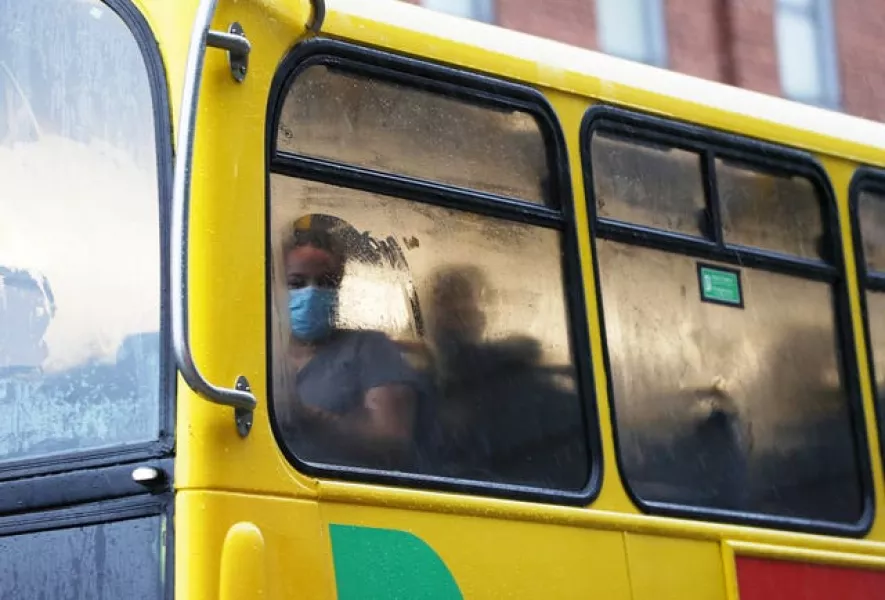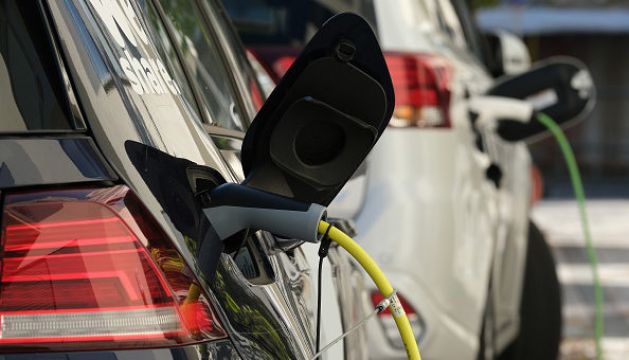Almost one million electric vehicles will be on the road by 2030, under targets set out in the Government’s €125 billion climate budget.
It aims to introduce 845,000 electric cars, 95,000 vans, 3,500 trucks and 1,500 buses, bringing the total number of electric vehicles on the road to 945,000.
An additional 500,000 public transport journeys are to be provided per day, with the transport fleet to go all electric by 2035.
The public sector is set to “lead by example” under the plans, with employees to switch to remote working 20 per cent of the time.
The budget also sets out plans to retrofit half a million homes by 2030, with citizens to be offered a new low-cost loan scheme for retrofitting.
Tax incentives are also on the cards and the Cabinet has approved a sweeping climate plan that will include:
- renewable electricity increased by 80 per cent
- a plan for offshore energy
- fresh policy on carbon capture before it enters the atmosphere
- a scheme for farmers and businesses to sell electricity into the grid
- phasing out of coal- and peat-fired electricity generation
The plan warns that hundreds of thousands of homeowners will have to decide to invest in decarbonising and making their properties more efficient, which will require a larger retrofit sector and new financing options.
Fresh estimates indicate that Ireland will need to deliver, on average, about 75,000 B2-equivalent home upgrades annually from 2026 to 2030 to achieve the target of 500,000 retrofits. Almost half of the Irish housing stock has an energy rating of D1 or worse.
Overall, the Government has targeted a 51 per cent reduction in emissions by the end of the decade, and a move to net-zero by 2050.
A range of emission reduction targets will be published by sector, with electricity set for the biggest cuts of between 62 and 81 per cent, relative to 2018 levels.

Transport emissions must reduce by 42 to 50 per cent, construction by 44-56 per cent, while industry has been set a target of 29-41 per cent.
A sharp focus of the plan concerns agriculture which is the largest source of emissions, representing 37.1 per cent of the national total in 2020. Agriculture has been set a reduction target of between 22 and 30 per cent.
Among the Government objectives in this area are:
- a plan to reduce significantly chemical nitrogen fertilizer use to 325,000 tonnes per annum
- improve animal breeding and feeding
- increase organically farmed land almost fivefold to 350,000 hectares
- “manage” emissions from the dairy herd
- transform the model of beef production
Carbon budgets are set to be published on an annual basis, with Government officials briefing that not all of the necessary measures will have been identified yet and may be subject to debate in the years to come.
Further measures that may be required could be “technically more challenging” and may not exist at scale in Ireland yet.
Specific targets
Next year’s carbon budget is expected to contain specific targets, rather than the ranges set out in the 2021 plan.
Sectoral ceilings will be enacted in the coming months.
The Climate Change Advisory Council is to produce annual reviews, examining if sectors are on credible trajectories to meet their targets.
Officials from each department will be obliged to appear before the Oireachtas Climate Committee, which will be empowered to make recommendations to the relevant minister if targets are not met.

Ministers will have three months to respond to the recommendations.
If national targets are missed, Ireland is likely to miss EU targets, which will incur fines.
Those costs, normally borne by the Department of the Environment, are likely to be shared among the departments that are in breach.
Progress will be overseen by a Cabinet sub-committee on climate.

A €5,000 grant is currently available for members of the public seeking to switch to electric vehicles.
Government officials say the cost of those vehicles will begin to reduce by the middle of the decade, with a wider choice on the market.
The first carbon budget contains more than 1,000 measures aimed at meeting Ireland’s climate objectives.







